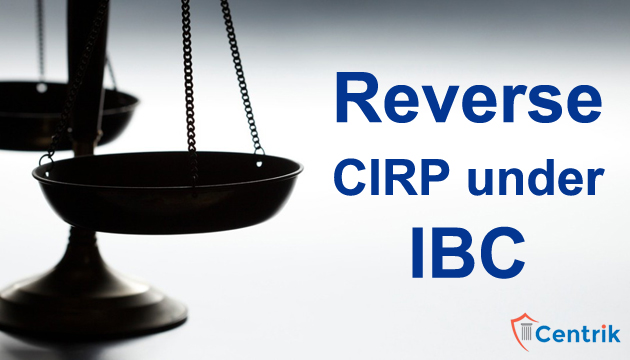
Status as on- 31/03/2023
The reverse Corporate Insolvency Resolution Process (CIRP) in India is a relatively new legal concept that has been introduced recently. This process is nowhere mentioned in IBC. It allows a company to propose a repayment plan to its creditors in order to settle its debts and avoid being declared insolvent.
The validity of the reverse CIRP process in India depends on various factors, including the adherence to legal provisions, the efficacy of the process, and the willingness of creditors to accept the repayment plan proposed by the company.
The success of the process also depends on the willingness of creditors to accept the repayment plan proposed by the company. If creditors are not satisfied with the proposed plan or if there are disputes regarding the repayment plan, the process may face legal challenges.
In India, once the CIRP process is initiated, it cannot be reversed or withdrawn except in very specific circumstances.
According to Section 12A of the Insolvency and Bankruptcy Code, 2016, the CIRP can be withdrawn if the financial creditor, the operational creditor, or the corporate debtor itself proposes a resolution plan before the issuance of the invitation for expression of interest, or before the preparation of the information memorandum.
In addition, the National Company Law Tribunal (NCLT) has the power to withdraw the CIRP in case of any material irregularity or fraud committed during the initiation of the CIRP process.
However, once the CIRP process has reached a certain stage, it cannot be withdrawn or reversed. Therefore, it is important to carefully evaluate the situation and seek legal guidance before initiating the CIRP process in India.
In the case of Flat Buyers Association Winter Hills-77, Gurgaon v. Umang Realtech Pvt. Ltd, the Hon’ble NCLAT took a practical approach with the intention of saving both, the interest of stakeholders and the survival of the business. Reverse Insolvency can be termed as a part of the Corporate Insolvency Resolution Process (CIRP), Reverse Insolvency process is done in the case of a real estate company, when in a real estate project any promoter or developer wants to remain outside the Corporate Insolvency Resolution Process but intends to act as a backer or lender by suffusing cash flow. This act of the promoter gives two major benefits. The first one is that the Corporate Insolvency Resolution Process (CIRP) reaches success and the second is that the project is completed without any difficulties and homebuyers would also be satisfied.
In the case of M/s. Sheltrex Developers Pvt. Ltd. Vs. M/s. Tata Capital Housing Finance Ltd. the NLCT, Chennai Bench held that IBC, 2016 does not provide for “Reverse CIRP,” hence such a mechanism is outside its purview. The Court dissented with the Flat Buyers’ case and held it could not be applied as precedent in the present scenario.
In the case of Ram Kishor v. Union Bank of India (1965), the NCLAT limited Supertech’s CIRP to one project itself. The NCLAT, Delhi, allowed Supertech Ltd. to finish the project by limiting the insolvency proceedings against it by applying the “Reverse CIRP” concept, thereby allowing the company to remain in charge of the execution of the project and letting the original promoter exist.
Conclusion
In conclusion, we can say that Reverse CIRP is a win-win process for homebuyers as well as for project developers, till now we can say that reverse CIRP is good but it is not a secure process and, in most situations, the promoter is failed to give investments as an outside financial Creditor. So, all together we can say that Reverse CIRP is still in an experimentation process and we should wait for more cases in which Reverse CIRP is applied and then observe its effect.
Disclaimer: The above article is based on the personal interpretation of the related orders and laws. The readers are expected to take expert opinions before relying upon the article. For more information, please contact us at rera@centrik.in & ibc@centrik.in




 join For Updates
join For Updates